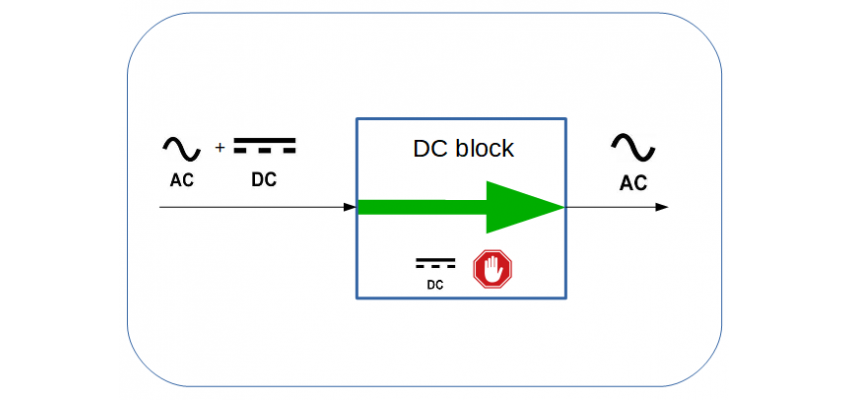When Should I use a DC Block in RF Applications?

Sometimes it is necessary to block the DC component in a RF signal. There are two main reasons to do so. The first one is to protect equipment or components that can't handle DC signals without damaging them. The second reason is to improve measurement accuracy.
1. Function of DC-blocks in RF applications
1.1 Protection
The most obvious function of a DC-block is to protect components that can't stand DC voltages. For example, a mixer that uses a transformer at its input, as many do! If such a component is not protected from the DC bias applied in the RF signal, it will generate high DC currents that can damage the delicate transformer easily. Also, many RF components can't handle DC voltages up to some specified upper limit. In this situation a DC block can be quite useful too.
1.2 Measurement Accuracy
In some situations, a DC component can influence measurement accuracy negatively. A well known example is the measurement of RF power by using a power sensor that also reacts to DC power. For example, a thermocouple-based power sensor. If such a sensor is used to measure RF power in signals that also poses a DC component then the measurement will be (severely) biased. In this situation a DC-blocking capacitor will be necessary.
1.3 No Free Lunch
The use of DC-blocks comes with some drawbacks. Firstly, by using a DC-blocking capacitor there is a discontinuity introduced in an otherwise uninterrupted transmission line. This will degrade VSWR (return loss) to some degree. Note that VSWR is a critical parameter when performing power measurements.
The second problem is keep the frequency range of the device up well into the GHz range.
2. Applications
Some examples where the application of a DC block makes sense are:
- Protecting the input of a balanced mixer. For example, when down converting RF signals in a direct conversion receiver architecture. Which can generate dangerously-high DC levels.
- Improving RF power measurements when a power sensor that is sensitive to DC signals is used.
- Protection from higher levels of DC voltage than the component is rated for.
- Improving the signal-to-noise ratio by filtering out low-frequency content.
3. Conclusion
When it comes to the protection of components against DC voltages and / or improving measurement accuracy by preventing DC bias, DC-blocks offer the RF engineer a good solution.
